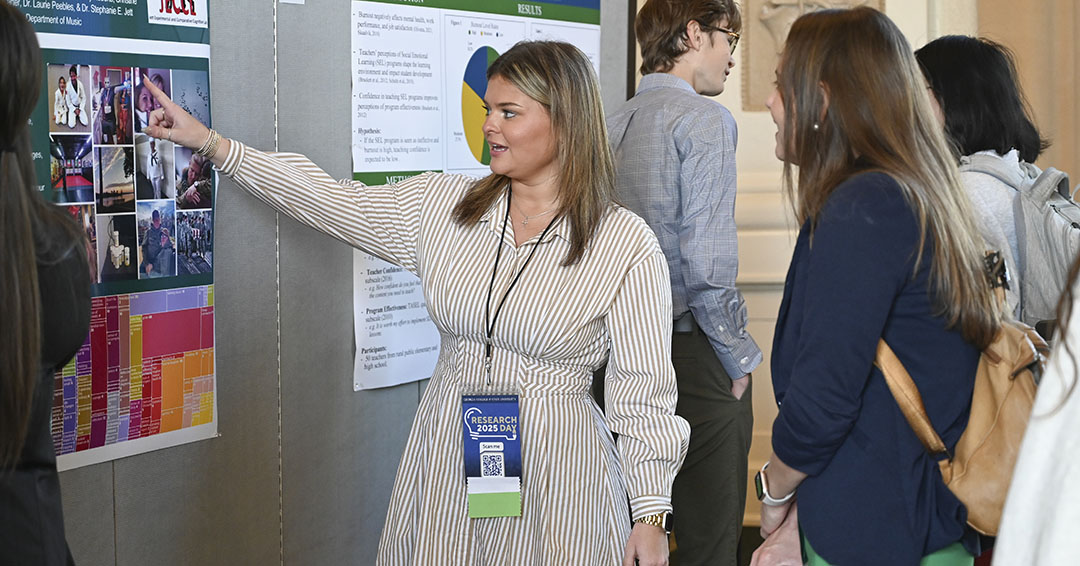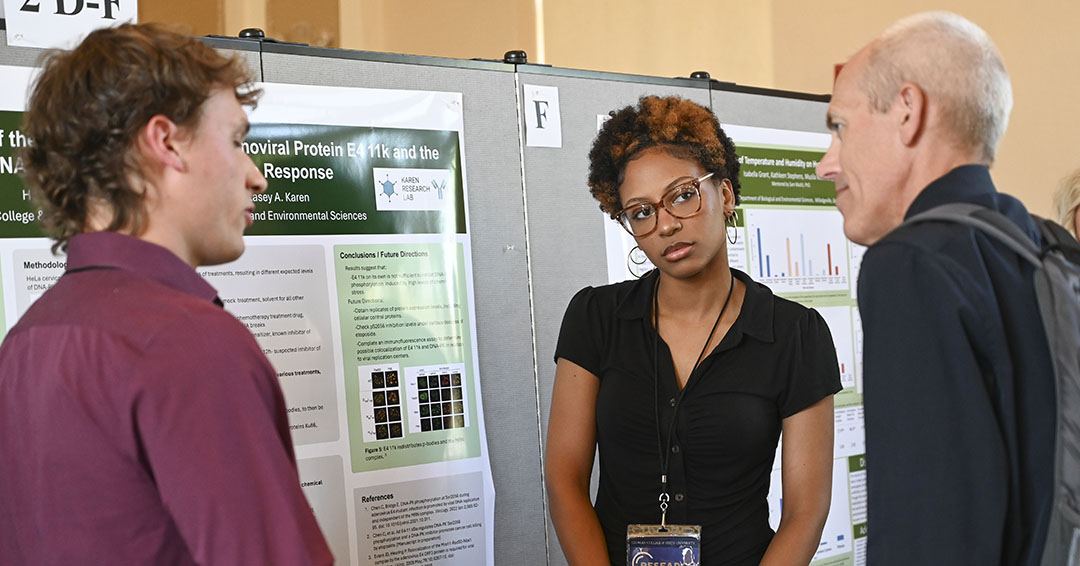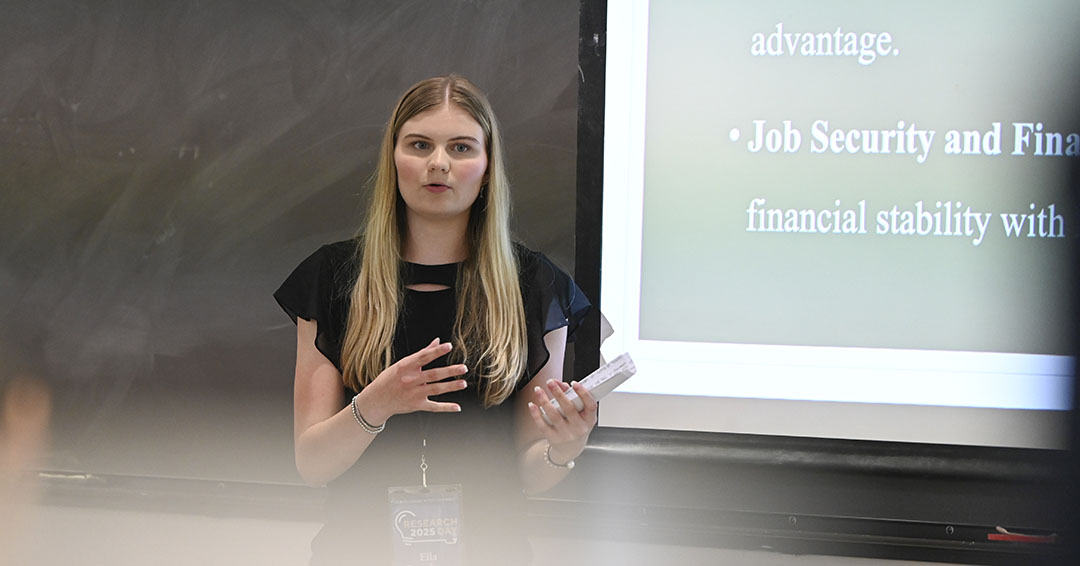GCSU Research Day grows to largest ever with over 250 student projects
Story and photos by Anna Gay Leavitt, Video by Chris Brown
A n annual celebration of all the mentored research taking place across the university, Georgia College Research Day is significantly larger in 2025 than ever before. More than 250 projects were showcased – an increase of 32% over last year’s event – including 38 graduate projects and 216 undergraduate projects.
In collaboration with the Women’s & Gender Symposium, which hosted 23 student presentations, Research Day offers a chance for students to share their research outside the classroom with the broader campus community.
Research is foundational to the experience of Georgia College students. In the latest graduating class for instance, a total of 67% of all graduates conducted undergraduate research during their time on campus – many as early as their freshman year.
This experience puts GCSU grads firmly ahead of the pack when launching their careers. A recent study by The American Association of Colleges and Universities showed that employers are “much more likely” to hire job candidates with specific experiences, including those who have worked as interns, held leadership roles, conducted undergraduate research or performed community service.
All of these high-impact learning experiences are fundamental to GCSU’s liberal arts mission. They also contributed to the university being ranked No. 1 most innovative by U.S. News & World Report last year.
Sophomore Sarah Carter is a biology major from Marietta, Georgia; her research analyzes protein structures within an enzyme found in Cherokia georgiana, a millipede species common in the Southeast and known for producing hydrogen cyanide as a defense mechanism. Carter cites the importance of the hands-on, experiential nature of her work in the labs of assistant professor of biology Dr. Arnab Sengupta and associate professor of biology Dr. Bruce Snyder.
“I think it is very useful to have research experience as an undergrad to possibly get into master’s programs, and just have hands-on research experience,” said Carter. Carter and the rest of the research team are also using generative AI software to predict the protein structures.
“Students are learning all about their particular research area, but they’re also learning those communication skills, those collaboration skills,” explained Snyder. “They’re learning about how what they do fits into the broader picture of the world, and the importance of the work they are doing.”



